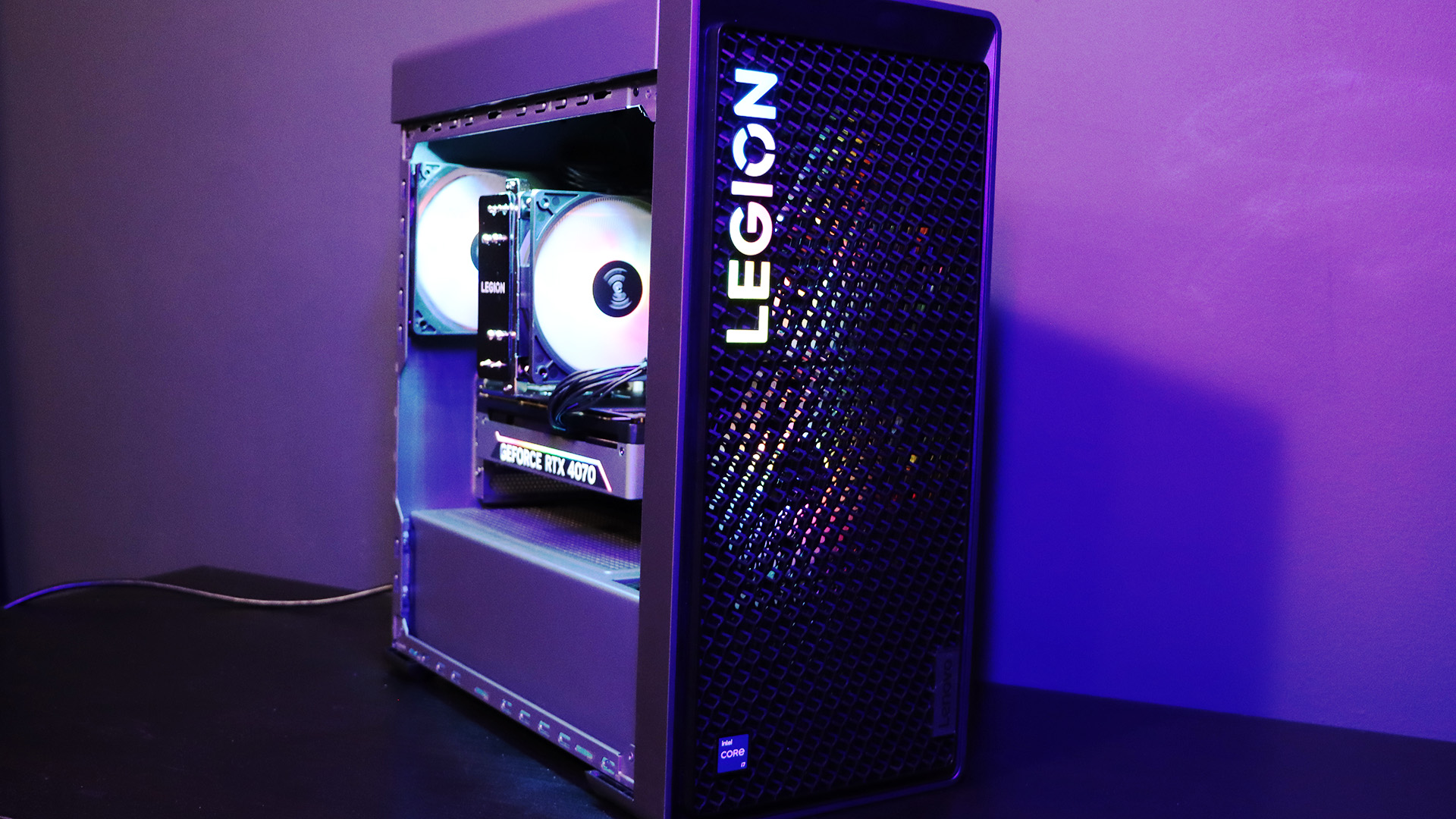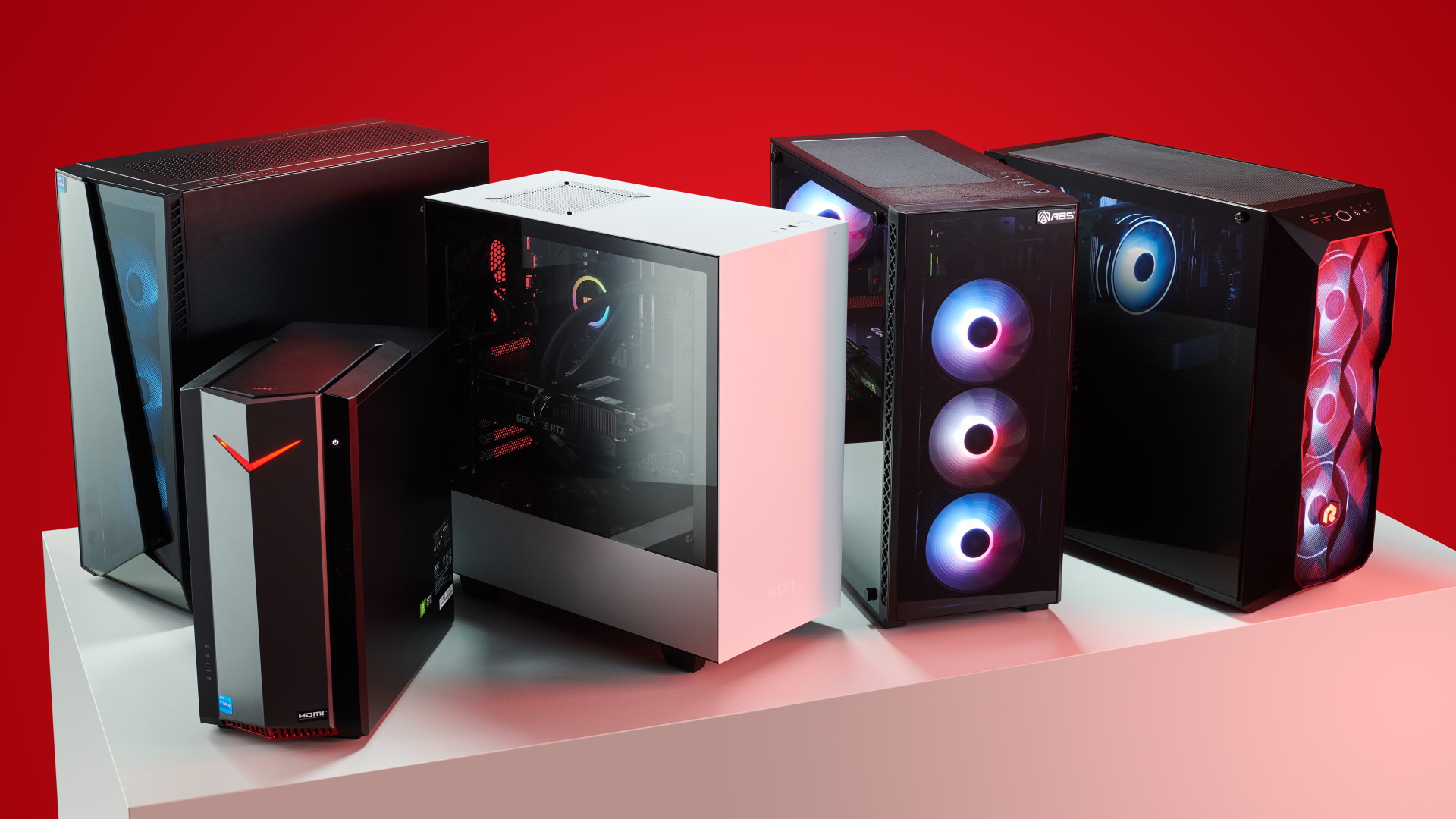
Whether you're a ruthless capitalist or a little more wary of the shopping season, you can't deny that we had some bangin' deals this October Prime Day (AKA Prime Day MK 2, Amazon Prime Big Deal Days, or "just shut up and call it a pre-Black Friday sale"). Yes, there were plenty of cheeky 'discounts' that were really just discounts from recently hiked prices, but there were some deals that were genuinely good.
The past couple of days are a blur, but I think we caught at least some of these great discounts. To name just a few, there was an RTX 4070 Super gaming PC going for just $1,100, the Lenovo Legion Go handheld going for $550, the Razer DeathAdder V3 Pro going for its lowest-ever Amazon price, and the Samsung T9 external SSD going for less than $0.06 per GB of capacity.
Some of them are still ongoing, by the way. You can still pick up the RTX 4070 Super build for $1,100 at Walmart, the Legion Go for $550 at Amazon, and DeathAdder V3 Pro for $110, also at Amazon. We did say that some Prime Day deals tend to spill over after the official end date, at least for a while, so be sure to check them out.
The question is, why have there been so many good deals this time around? Although there have been some gems in previous sales, this time around it was a different level. Last year's October Prime Day, and even Black Friday didn't really hit as hard as this year's October Prime Day.
The answer, I think, is that we're nearing the very end of a hardware generation. We already have some next-gen AMD CPUs and mobile Intel chips, and some next-gen Intel CPUs are practically on the doorstep. But none of this makes for a generational change until the meat arrives to complement the potatoes—I'm talking about the GPU.
AMD's RDNA 4 GPUs are expected to launch at CES in January 2025, and there are at least some whispers of an Nvidia RTX 50-series announcement at the very same CES. This would make sense given Nvidia CEO Jen-Hsun Huang will be hosting the CES 2025 keynote.
So, while some next-gen components are here or practically-but-not-quite here, the most important ones for us gamers aren't quite, but they are on the near horizon. When we're talking about an entire system—a gaming PC or laptop—we're still very much in the same territory we've been in for the past two years.
RTX 40-series and RX 7000-series systems—whether they're Intel 13th Gen, 14th Gen, Lunar Lake, soon-to-be Arrow Lake, or AMD Zen 5—are all very much of the current generation. And we have every reason to believe the next generation is right around the corner.
System manufacturers and builders will know this, too. They'll know that all their currently retailing systems, however up-to-date their CPUs, RAM, and SSDs may be, are soon to be superseded by new systems featuring the best graphics cards yet to come.
This means there's a big incentive to clear stock, because nobody's going to want to buy 40-series and 7000-series systems at full whack come next year when the new systems are out. Leaving these systems unsold into the New Year would be like leaving money on the table.
The same is possibly true, to a much more limited extent, of other things such as peripherals. People often buy such things alongside new systems, or at least around the same period of time when people are buying their systems. So it makes sense for other devices, components, and peripherals to follow suit.
All of this is, of course, very good for us consumers. We end up with some great prices on some still pretty powerful products as companies try to empty out their wares in the lead-up to the next generation.

Best gaming PC: The top pre-built machines.
Best gaming laptop: Great devices for mobile gaming.
And although I don't want to jinx it, this might bode well for next month's Black Friday, too. If October Prime Day is like a Black Friday lite, and given next month we'll be even closer to the next generation, we can start to let ourselves get at least a little excited at the prospect of yet more fantastic deals.
A word of caution, though: If you're looking to drop a phat wad on a new system, bear in mind that in a few months' time, there will very likely be newer systems on the market that outperform whatever you buy this side of the holiday season.
The big expensive GPUs usually launch first in each generation, so this is more of a risk for those looking at buying top-end systems at discounted but still-expensive prices. Those looking to more moderate or budget rigs, though, might have no next-gen competition for a while longer.
If the deal prices are good enough come this Black Friday, as I think we have reason to believe they will be, then they might be worth it in the face of the next generation regardless. Fingers crossed!







